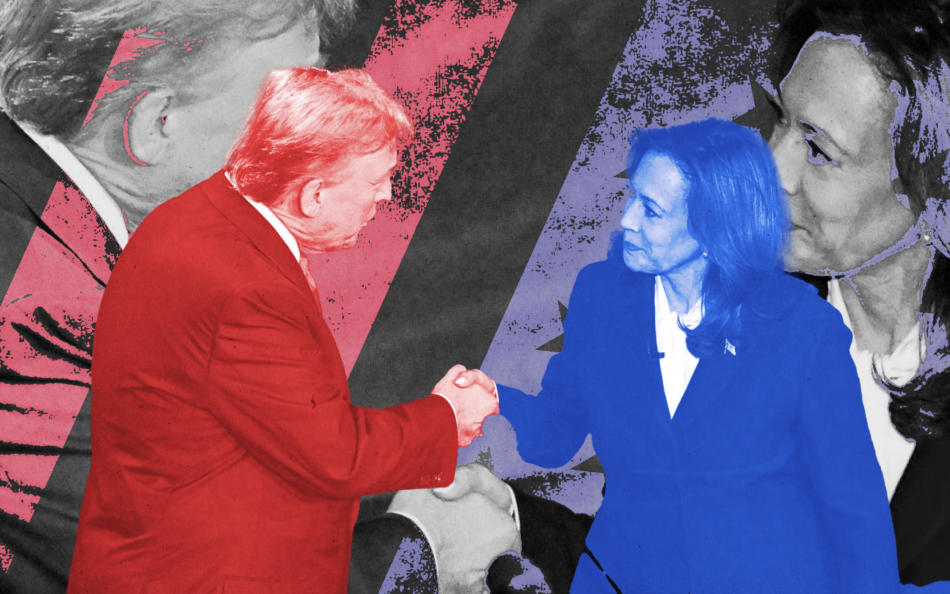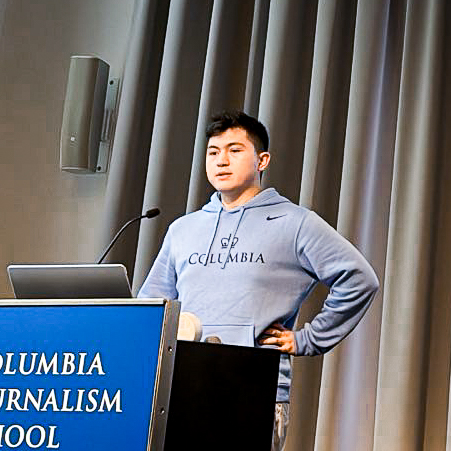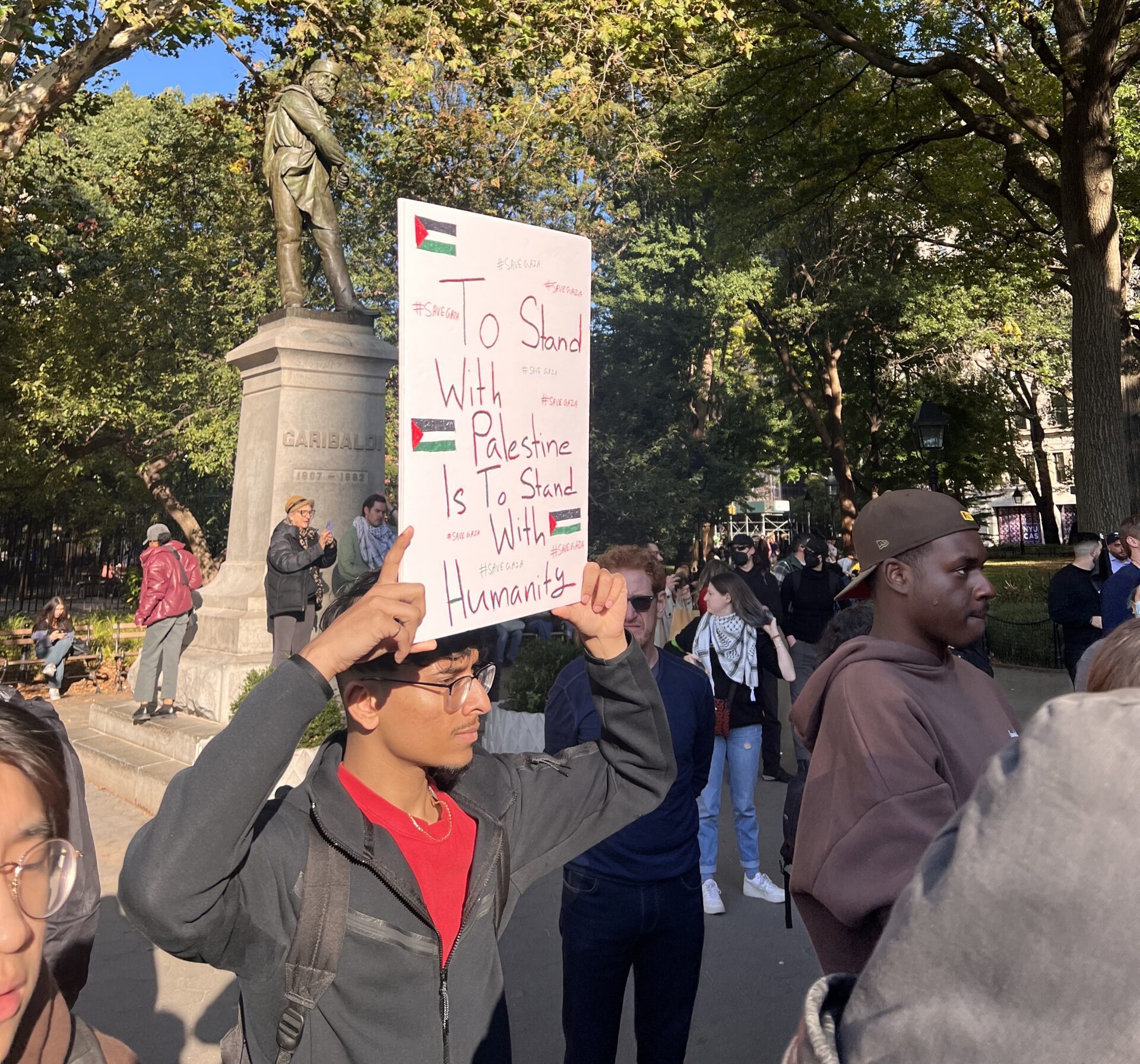Minutes after the Florida Panthers defeated the Edmonton Oilers in Game 7 of the Stanley Cup Final on June 24, the two teams met in the middle of the ice at Amerant Bank Arena in Sunrise, Fla., to exchange handshakes. For the Panthers, it was a celebration. For the Oilers, the gracious acceptance of defeat.
Each player and coach moved through the line, shaking hands with everyone on the other side. Some embraced. Others exchanged words. Though the teams had just gone to war on the ice for seven straight games, they congratulated each other on what was not only an excellent series, but a fair one.
Hockey is a game governed by strict rules, enforced by officials and the confines of the rink. When the clock hits zero, the game is over. One team always goes home disappointed.
The same could be said for politics. The U.S. Election carries near-identical traits to the Stanley Cup Final. Two teams, Republican and Democrat, battle to win. The score is kept numerically, by the number of votes each party receives. Most importantly, when the game is over, one side must accept its loss.
That final point seems to have never gotten through to Former President Donald J. Trump. A handshake should never be newsworthy in competition. There’s a reason it’s called a tradition in hockey. But when Vice President Kamala Harris initiated one with Trump at the start of their Sept. 10 debate, it made headlines. Not just because Harris’ initiation of the gesture was a byproduct of Trump’s inability to exhibit class, but because this was the first time the two U.S. presidential candidates had shaken hands since 2016 — Trump’s first year running for President.
Trump’s lack of sportsmanship has had a cascading effect on U.S. politics. His presidency ended with his refusal to accept his loss to President Biden in the 2020 Election. A mob of Trump’s supporters attacked the Capitol. Trump to this day insists that he won that election. His running mate, Senator JD Vance of Ohio, has also said publicly that Trump did not lose.
Sportsmanship used to be the last thing that upheld the integrity of politics. Aside from handshakes, the losing candidate after each election would call the winner to congratulate him. This gesture, like a handshake, solidifies the legitimacy of the election. A similar concession is heard all the time in sports: “Good game.”
Trump made neither a concession speech or a call to Biden to acknowledge his loss. Instead, he simply declared, “this election is far from over.”
Imagine an athlete who, after a Game 7 loss, insisted that they should have won. Imagine, instead of accepting defeat, he blamed the officials for favoring his opponent. Imagine, instead of looking at himself in the mirror, asking what he could have done differently, he blamed others and complained on social media about how unfair the series was.
“This is something that sore losers say when they’re grasping at straws,” said Alex Tolkin, a PhD candidate at the University of Pennsylvania who studies the influence of sports on political attitudes. Tolkin was referring to Trump’s response to the 2020 Election results. The same principles apply.
“In sports, if you saw an athlete saying, ‘We lost because of some nonsense reason,’ you’d be like, ‘What are you talking about? This is ridiculous,’” Tolkin added.
Tolkin is writing his dissertation on the impact of sports “legitimating rituals,” like handshake lines, in influencing political attitudes. He describes these rituals as “public behaviors that participants in a contest engage in, and that signal the contest is conducted using a fair process” in his December 2023 working paper Good Sports and Sore Losers: How Watching Sports Increases Perceptions of Election Legitimacy.
In his research, Tolkin has found that, while election legitimacy tends to drop among supporters of the losing candidate, it drops less among those who watch sports. They understand the rules. They know how to accept a loss. They exhibit good sportsmanship.
On the other hand, we have Trump, who was tied with Lyndon Johnson for the least sportsmanlike president in Chris Cillizza’s 2023 book Power Players: Sports, Politics, and the American Presidency. Cillizza, a longtime political journalist, told The Guardian that Trump is “not a good sport who’s going to be genteel.”
Part of this can be attributed to Trump’s competitive nature. He is a man who will do whatever it takes to win. But winning, for Trump, is not “being the best at something while following the rules that everyone else follows,” said Johnny Harris, an independent journalist, in an Oct. 24 YouTube video he produced about Trump.
“To Trump, winning means making people think you won,” Harris continued. “Making people think you’re worth $100 million even though you’re worth $5 million. The truth doesn’t matter. The perception matters.”
Could sports save America? Or, perhaps more importantly, could sports save Trump and his hardcore supporters?
You’d think that leaning into sports, which is heavily governed by a rules-based culture, would come naturally to Trump, who attended and thrived in military school, Harris explained in his video, and who has long been involved with American football, as a spectator, owner and politician — he’s used college games as a campaign platform.
But for whatever reason, Trump has had a hard time accepting the rules of the election when they don’t work in his favor.
When we spoke a few weeks ago via video call, Tolkin explained that the political sphere can learn a few things from the world of professional sports. At the forefront is respect for both the rules of competition and the other team. In other words: sportsmanship.
Sports fans, he said, are “better at coping in healthier ways.”
In his research, Tolkin found that Trump’s supporters who watched sports showed more acceptance of the 2020 election loss.
Michael Serazio, a professor in the Department of Communication at Boston College, said Tolkin’s findings speak to the rules-based culture of sports.
“This probably feels sort of obvious,” said Serazio during a phone interview. “But it’s just the way in which sports is predicated upon a rules based culture.
“Sports is so hard on cheating, performance enhancing drugs, gambling, things like that,” Serazio continued. “That makes the average sports fan believe that contests have rules, and contests are legitimate because of those rules. If you’re already within that fan culture and you believe in the legitimacy of contests and sports, maybe that translates to believing in the legitimacy of political contests as well.”
Sports are widely popular in the U.S. In a St. Bonaventure University survey conducted earlier this year, 71 percent of Americans said they were sports fans.
In the 2022–23 season, NBC’s Sunday Night Football was the most-watched television show in the country, drawing 18.14 million viewers. At the end of each of those broadcasts, many of the players met on the field, exchanging handshakes, hugs and sometimes jerseys. It’s a tradition similar to the one put on display by the Panthers and the Oilers after the Stanley Cup Final.
American football, the sport Trump loves and has been involved with for decades, is rooted in sportsmanship.
Some might argue that sports and running a free country are two monumental extremes. A championship is a championship. Winning one won’t solve world hunger or resolve wars. We must be cognizant of the fact that there is a difference between sports and politics.
Still, we can learn from the traits of sports.
There are rules in every competition that keep both sides civil. Long before the Panthers and the Oilers shook hands to commemorate the end of their series, both teams knew that one of them was going home. It was Game 7.
On hockey’s biggest stage, the greatest rise to the occasion. Heroes are crowned. Curses are broken. Above all else, the integrity of the game is never compromised.
One of the two presidential candidates will, next week, meet a similar fate as the Oilers did in June and fall short of being named the next president. On politics’ biggest stage, the best candidate will win. Like the Stanley Cup Final, the election will bring triumph to one side and heartbreak to the other.
Maybe this time around, both will go home with the knowledge that the game was played fairly.


